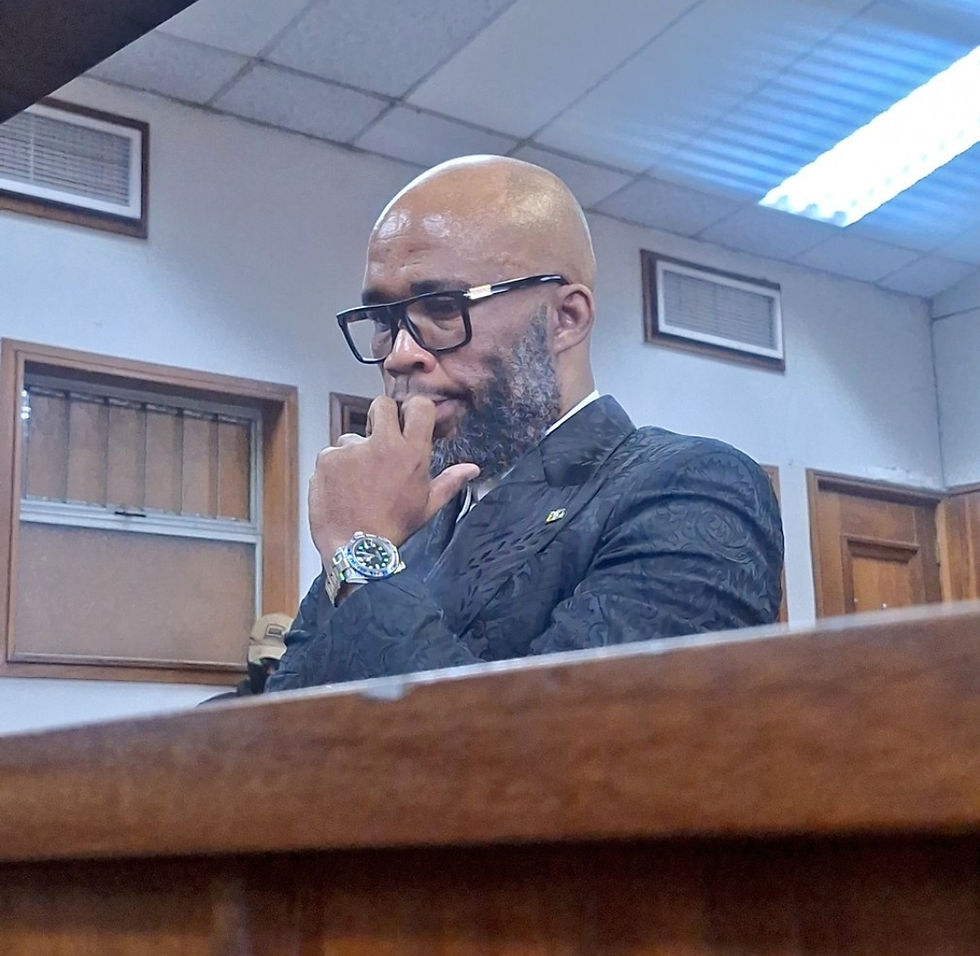Charting a Better Course: South Africa's Revised Budget Holds Key to Economic Future
- Mpho Dube
- May 1
- 4 min read
Updated: May 12
As Finance Minister Enoch Godongwana prepares to table a revised budget on May 21, South Africans are eagerly awaiting the details of the new financial blueprint. The revised budget comes after months of uncertainty, with the government grappling with the challenges of managing costs, creating jobs, and maintaining social assistance for the most vulnerable. In this opinion piece, we'll explore the significance of the revised budget, the challenges that lie ahead, and the opportunities for growth and development.
Godongwana's announcement that the VAT rate will remain unchanged at 15% and social grants will be maintained is a welcome relief for many South Africans. The decision demonstrates the government's commitment to protecting the welfare of its citizens, particularly those who are most in need. This move will undoubtedly provide a sense of stability and predictability for households and businesses alike, allowing them to plan for the future with greater confidence.
The maintenance of social grants is particularly significant, as it acknowledges the critical role that these grants play in supporting the most vulnerable members of society. By continuing to provide this support, the government is ensuring that those who need it most are not left behind. This decision also underscores the government's commitment to reducing poverty and inequality, which are pressing challenges that South Africa continues to face.
In a refreshing display of accountability, Finance Minister Godongwana apologized for the mistakes made in the budget process. This apology is a testament to the government's commitment to transparency and accountability. By acknowledging the errors and taking responsibility, the Minister has shown that the government is willing to learn from its mistakes and work towards a better future for all South Africans.
President Cyril Ramaphosa's administration calls for the country to work together is a timely reminder of the importance of collaboration and cooperation. With the DA and EFF eager to claim victory, the President's allies urging for these parties to refrain from politicking and political points scoring is a welcome intervention. In the spirit of unity, it's essential that all stakeholders work together to find solutions to the country's economic challenges.
The DA and EFF's claims of victory over the VAT reversal are nothing short of hogwash. The reality is that the government's decision to maintain the VAT rate and social grants is a result of a complex process that involved multiple stakeholders. Rather than engaging in petty politicking, these parties should focus on constructive engagement and contributing to the country's economic growth and development.
The ANC's recent struggles, including its 40% vote share in the previous elections, serve as a wake-up call for the party. If it doesn't learn from this experience, it risks further decline and potentially never recovering. To reclaim victory, the ANC must put the people's interests first and abandon the pompousness and tomfoolery trends of narcissistic, skewed factionalist tendencies that have plagued the party for years.
After 31 years in power, the ANC has had ample opportunity to deliver on its promises and make a meaningful impact on the lives of South Africans. Instead, the party's factionalism and self-interest have led to calamity after calamity. It's time for the ANC to take a long, hard look in the mirror and acknowledge its mistakes. By prioritizing the people's needs and working towards a more inclusive and equitable society, the ANC can begin to rebuild trust and reclaim its rightful place as a champion of the people.
However, the road ahead will not be without its challenges. Godongwana aptly described the current economic terrain as "uncharted," and the GNU's discussions as "messy." The reality is that South Africa's economy is facing significant headwinds, including slow growth, high unemployment, and a complex global economic landscape. These challenges require careful navigation and strategic decision-making to ensure that the economy remains on a stable footing.
The GNU's discussions being described as "messy" highlights the complexities of governance in a coalition government. With multiple parties involved, finding common ground and reaching consensus can be a daunting task. Nevertheless, the Finance Minister's commitment to working together with all stakeholders to chart a better course for the economy is a positive step. It remains to be seen how effectively the government will be able to manage these challenges and deliver on its promises.
The revised budget will be a test of leadership for the Government of National Unity. Will they be able to put aside their differences and work towards a common goal? Can they unlock barriers to create more jobs and manage government costs better? These are the questions that South Africans are eager to see answered. The revised budget presents an opportunity for the government to demonstrate its ability to work collaboratively and make tough decisions in the best interests of the country.
One of the key challenges that the government will face is managing government costs effectively. With a large and complex bureaucracy, there are opportunities for waste and inefficiency. The government will need to prioritize.

Mpho Dube is The Editor in Chief, Founder and Publisher of The Azanian online national and international publication. He also won three national awards for The Caxton/The Citizen.



Comments